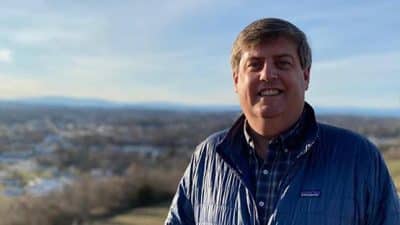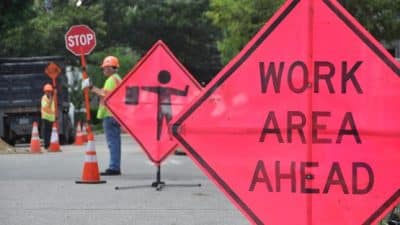Story by Chris Graham
Republican Party gubernatorial candidate Jerry Kilgore wants to give Virginia voters the final say-so when it comes to tax increases.
“Taxation is the most basic relationship between a people and its government. I trust the people to make decisions on whether they want to pay more in taxes or less in taxes,” Kilgore said during a televised debate with Democratic Party rival Tim Kaine earlier this month.
Kilgore’s proposal would subject all tax increases to referendums wherein voters would have the chance to decide how much money the state government would have to spend.
The suggestion has been lambasted by Kaine and independent candidate Russ Potts.
“It’s symbolic of the kind of leader that he would be,” Potts told The Augusta Free Press. “You’re elected governor to lead. You’re not elected to put everything to referendum.
“The election to determine the next governor is Tuesday, Nov. 8. Referendum is spelled C-O-W-A-R-D,” Potts said.
Kaine used similar harsh rhetoric to describe the Kilgore tax-referendum plan.
“You’ve got to have backbone to lead if you want to be governor,” Kaine said during the televised debate with Kilgore.
“Jerry, if you trusted the people, you’d stand here today and say that the budget reform of 2004 was a good thing, because Virginians overwhelmingly support it,” Kaine said.
Kilgore, for his part, has characterized Kaine’s position on tax referendums as being a newfound one.
“You know, my opponent, on this issue, has flip-flopped once again. He called those that opposed the regional referendum arrogant, and now in this campaign, he’s calling you, the people of Virginia, an angry mob. The fact is, if politicians like Tim Kaine could keep their word, we wouldn’t need referendums,” Kilgore said.
Kilgore joined former governors Doug Wilder and George Allen in calling for a referendum on the measure that became the $1.4 billion tax increase of 2004. Allen, speaking with reporters on a conference call earlier this month, said referendums weren’t necessary when he was governor in the mid-1990s “because what I was proposing were tax cuts.”
“Jerry’s opponent, four years ago, when he was running, said ‘we’re against tax increaes, we oppose tax increases.’ You can go back and look at your articles from four years ago. They said, ‘Oh, gosh, all we want to do is let the people decide.’ They pushed through some legislation to allow regional tax increases, and then advocated very strongly to the people that they should be raising their taxes, millions and millions of dollars, and then the people of Hampton Roads and Northern Virginia voted down the tax increases,” said Allen, now a United States senator.
“Then, after that happened, they said, ‘Oh, gosh, we have to have this massive, historic, biggest tax increase in Virginia history because of the budget situation,’ and then former governor Wilder, Jerry Kilgore and I said there was a way around the budget impasse. Why don’t you let the people decide?” Allen said.
“It’s consistent with the promises they’d made. They said, ‘Oh, no, we can’t be doing something like that.’ They clearly didn’t think the people would be in support of the largest increase in history,” Allen said.
Delacey Skinner, a spokesperson for the Kaine campaign, believes Kilgore is using the referendum issue to hide his real intentions.
“Real leaders make tough decisions. They don’t pass the buck,” Skinner told the AFP. “I think what Jerry Kilgore wants to do is he wants to raise Virginians’ taxes. He just doesn’t want to have to put his name by it.
“He’s made it very clear, even on transportation, he wants to create a new level of bureaucracy that would have new taxation powers. That’s a way of saying, ‘What I want to do is raise your taxes, but I’m not going to put my name on it,’ ” Skinner said.
Potts said Kilgore’s plan “totally forfeits the idea that Jefferson had right and Madison had right.”
“When they created the republic, they based their whole concept of democracy on people standing for election,” Potts said. “I’ve said many times that if in fact a locality or the state decided that it didn’t like the policies of the people that they have elected to represent them, then they have the opportunity to replace them.
“Our forefathers had this thing right. They didn’t create a democracy by referenda. We wouldn’t have the great country that we do today if our leaders had sidestepped the tough situations that they faced. Did Harry Truman put the Marshall Plan up to a referendum? Did FDR put World War II to a referendum? Did Mills Godwin put the community-college system to a referendum? Absolutely, unequivocally not,” Potts said.










